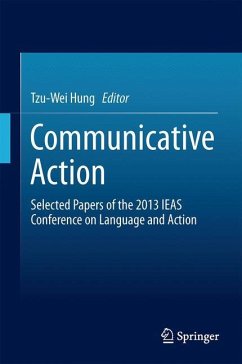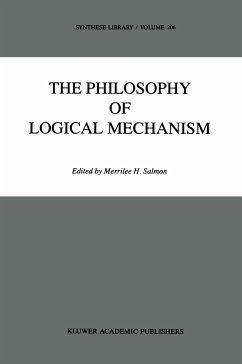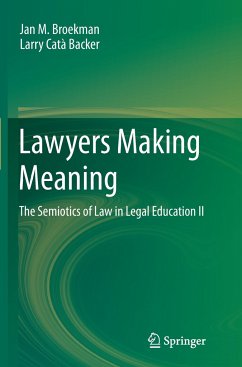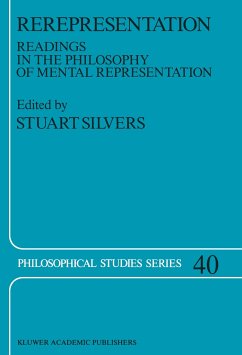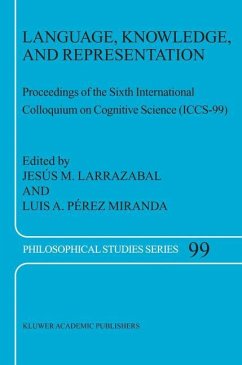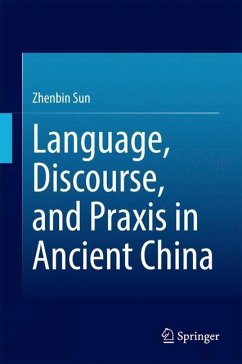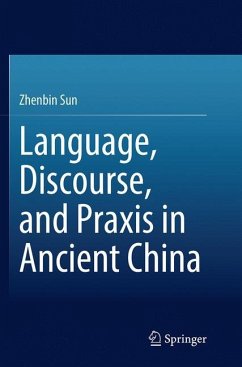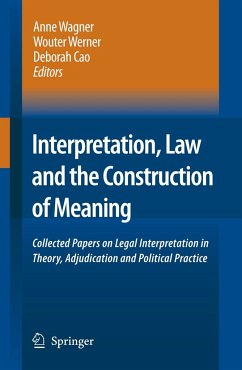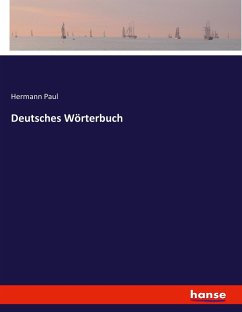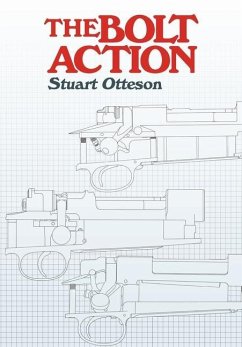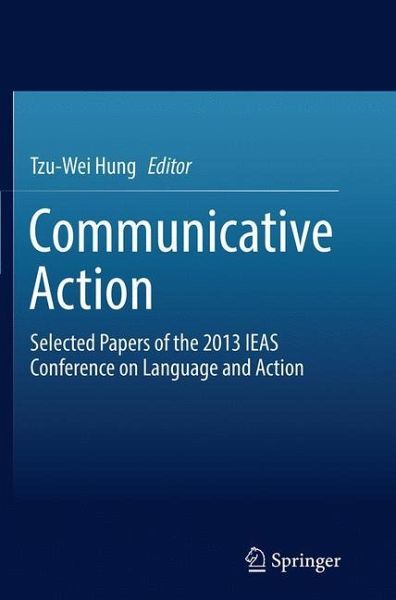
Communicative Action
Selected Papers of the 2013 IEAS Conference on Language and Action
Herausgegeben: Hung, Tzu-Wei
Versandkostenfrei!
Versandfertig in 6-10 Tagen
76,99 €
inkl. MwSt.

PAYBACK Punkte
38 °P sammeln!
This book focuses on the connection between action and verbal communication, exploring topics such as the mechanisms of language processing, action processing, voluntary and involuntary actions, knowledge of language and assertion. Communication modelling and aspects of communicative actions are considered, along with cognitive requirements for nonverbal and verbal communicative action.Contributions from expert authors are organised into three parts in this book, focussing on language in communication, action and bodily awareness and sensorimotor interaction and language acquisition.Readers wi...
This book focuses on the connection between action and verbal communication, exploring topics such as the mechanisms of language processing, action processing, voluntary and involuntary actions, knowledge of language and assertion. Communication modelling and aspects of communicative actions are considered, along with cognitive requirements for nonverbal and verbal communicative action.
Contributions from expert authors are organised into three parts in this book, focussing on language in communication, action and bodily awareness and sensorimotor interaction and language acquisition.
Readers will discover various methods that have been employed in investigations presented here, including neurological experiment, computational modeling and logical and philosophical analysis.
These diverse expert perspectives shed light on the extent to which a mechanism for processing actions also facilitates the processing of language and the authors' work prompts further interdisciplinary investigation of the relationship between language and action.
This book is written for readers from different academic backgrounds; from graduate students to established academics in disciplines ranging from neuroscience to psychology, philosophy, linguistics and beyond.
Earlier versions of the selected essays in this book were presented at the 2013 IEAS Conference on Language and Action, held in Taipei, Taiwan.
Contributions from expert authors are organised into three parts in this book, focussing on language in communication, action and bodily awareness and sensorimotor interaction and language acquisition.
Readers will discover various methods that have been employed in investigations presented here, including neurological experiment, computational modeling and logical and philosophical analysis.
These diverse expert perspectives shed light on the extent to which a mechanism for processing actions also facilitates the processing of language and the authors' work prompts further interdisciplinary investigation of the relationship between language and action.
This book is written for readers from different academic backgrounds; from graduate students to established academics in disciplines ranging from neuroscience to psychology, philosophy, linguistics and beyond.
Earlier versions of the selected essays in this book were presented at the 2013 IEAS Conference on Language and Action, held in Taipei, Taiwan.





